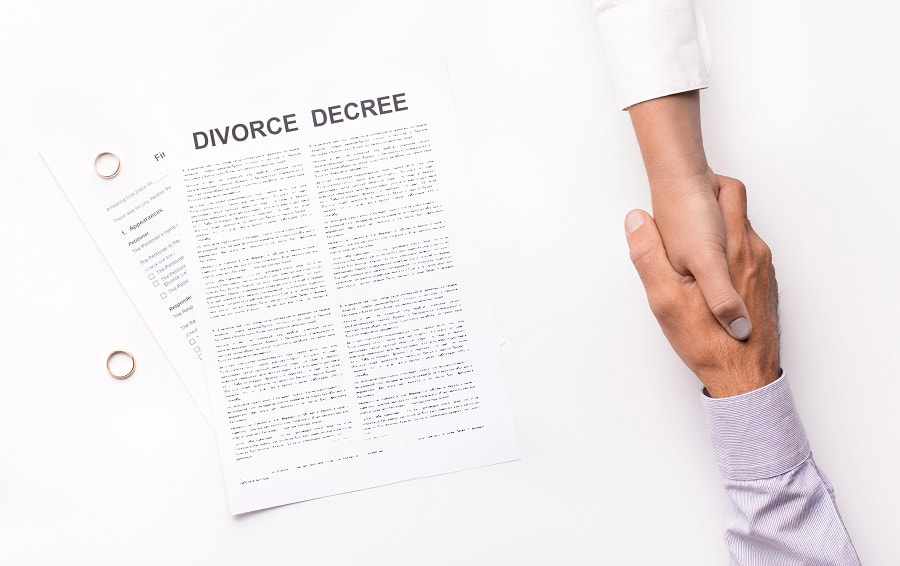
According to Statistica, the divorce rate in New York in 2018 was 2.8 divorces per thousand inhabitants in the State of New York. Was that number lower or higher than you expected? Based on public records and other data, the divorce rate is at the third lowest rate it has been since 1990. Fewer people in New York are getting divorced right now.
But for couples that have exhausted efforts to reconcile, a low divorce rate doesn’t really mean much does it? Because you are preparing to start or participate in a divorce, and what other people do does not matter. Right now, its about you and your children, and your future. And you are going to need some legal help.
What is Divorce Mediation?
There is no mystery behind the reason why some divorces can be so contentious. We are talking about deep emotional impact here. It hurts to end a relationship. It is scary when you think about the process of separation and what that is going to look like, from your pension to your debt, custody, and child support, down to who gets the dog and leather sofas.
At Weisman Law Group, we are trained divorce litigators, helping our clients navigate the difficult process of a convention divorce in court. However, over the years of our legal practice in family law, many times we ran into couples that were not contentious at all. In fact, they did not need to be in a court of law either. They were capable of “settling out of court” through a process called divorce mediation.
Working with an Attorney mediator, the partners can proceed through the steps of divorce by negotiating terms that are favorable. The mediator works as an advocate for both partners, helps determine conditions or assets that are not disputed (and easily divisible). Then proceeds to aspects of the divorce agreement where the partners are not in agreeance, and where constructive negotiations begin.
A mediation that is successful ends in a non-contentious divorce for the couple. The divorce is filed, custodial and non-custodial terms are set, and the financials are determined and processed (including division of assets). Without ever stepping foot in a court room.
Our team at Weisman Law Group would like to share the top five (5) reasons why couples are now choosing divorce mediation instead of litigation.
1. Mediation Can Reduce Legal Costs Compared to Litigation
Initiating a divorce is not the expensive part. The process is fairly straight forward when both parties agree. It is the litigation in a contentious divorce, where couples cannot compromise or meet common ground for important decisions, that litigation becomes costly.
Once the matter has gone to court, the divorcing partners will not only incur legal fees from their private divorce attorneys, but also court fees, document and evidence administration fees, courier fees for agreement reviews and more.
With divorce mediation, all administrative processes are handled within our office at Weisman Law Group. We do recommend that couples try remediation first, before proceeding with a conventional divorce in family court. It can save you time, frustration, and expense.
If the divorcing couple is unable to reach an agreement with the assistance of a divorce mediator, the process will be moved up to Family Court. And it is not how long your divorce might take in court that is concerning; it’s how long it can take for a Family Court case to be heard, when there are a backlog of cases for the court to review.
2. It Can Reduce Emotional Damage and Create a Better Relationship Between Divorcing Partners
We know from clinical research and also through friends from divorced families, that dissolution of a marriage when there are children involved is tragic, if the divorce becomes a hostile battle, instead of a negotiation between two adults to want to start a new chapter in their lives.
No one intends to harm their children. And most couples think they can navigate divorce without becoming hostile or allowing the child or children to see the upsetting instances of arguments and fights.
Divorce mediation is less adversarial. When both partners work together to find a fast and mutually acceptable agreement, then can move on and into the new chapter of the life faster and with less discord. This is helpful when it comes to families who will be sharing custody as it creates a more amicable and cooperative split.
3. Divorce Mediation is a Much Faster Process
How fast is fast? That of course, depends on the couple. But in many cases divorce mediation can be as fast as 3-4 sessions. Some married partners have already formalized most of the negotiation on paper before they retain a divorce mediator, in which case, there will be little to work out before filing for legal divorce.
However, other couples who really cannot agree on certain items, will need a mediator to bring each issue or item to the table for consideration, discussion and decision making. The more issues there are, the longer the mediation can take. But overall, it is much faster.
The average conventional divorce in the State of New York requires a period of at least six months of irreparable separation before the divorce can be filed. A mediation divorce can be done in about 3-8 sessions on average. Without having to go to court at all. And in special circumstances, the mediation can be scheduled for evenings or weekends to avoid disruption during the business day for the clients.
4. It Creates Less Distress and Instances of Trauma for Children
As a parent, we know that children hear everything. Even the things you try so hard to shelter them from, if you are a couple engaged in a contentious separation and divorce, the hostility has a negative impact on your child or children.
Some couples think that living in a separate residence during the divorce is a good idea. If the situation is volatile, it can help to reduce the amount of toxicity and stress in the home environment for children. However, separate residences may not stop the aggression. It has the same impact whether the child witnesses it or overhears daily aggressive conversations.
Taking a collaborative and compromising approach to divorce, bypasses the exposure to the kind of toxicity and psychological trauma that can have a lifelong impact on children. In very cooperative instances, the child or children may even be involved as part of the mediation process. To feel confident that they are also part of the process for defining the new structure of the family.
5. Compromise in Mediation Means Everyone Wins
No partner should feel like they emerged at a disadvantage, after a divorce agreement is signed and filed. When you enter into divorce mediation with one of our Attorneys at Weisman Law Group, you have the benefit of more than our legal services. You have guidance and advice from a divorce lawyer with experience in some of the more difficult psychological and relationship aspects of getting a divorce.
Many of the conflicts that appear between divorcing couples can be ironed out with the help an experienced divorce mediator. Some couples arrive with a thought out and detailed draft divorce agreement and want a legal professional to review it. Others attend divorce mediation because they do not know where they need to start, but they know they do not want to fight.
And that is a good start for a peaceful, non-contentious divorce that could help both partners get on the road to healing and recovery. Divorce mediation is kinder to your spouse, kinder to yourself and to your savings account.
Schedule your free divorce consultation with us. Weisman Law Group serves Nassau County, and surrounding areas of New York.




 RSS Feed
RSS Feed
